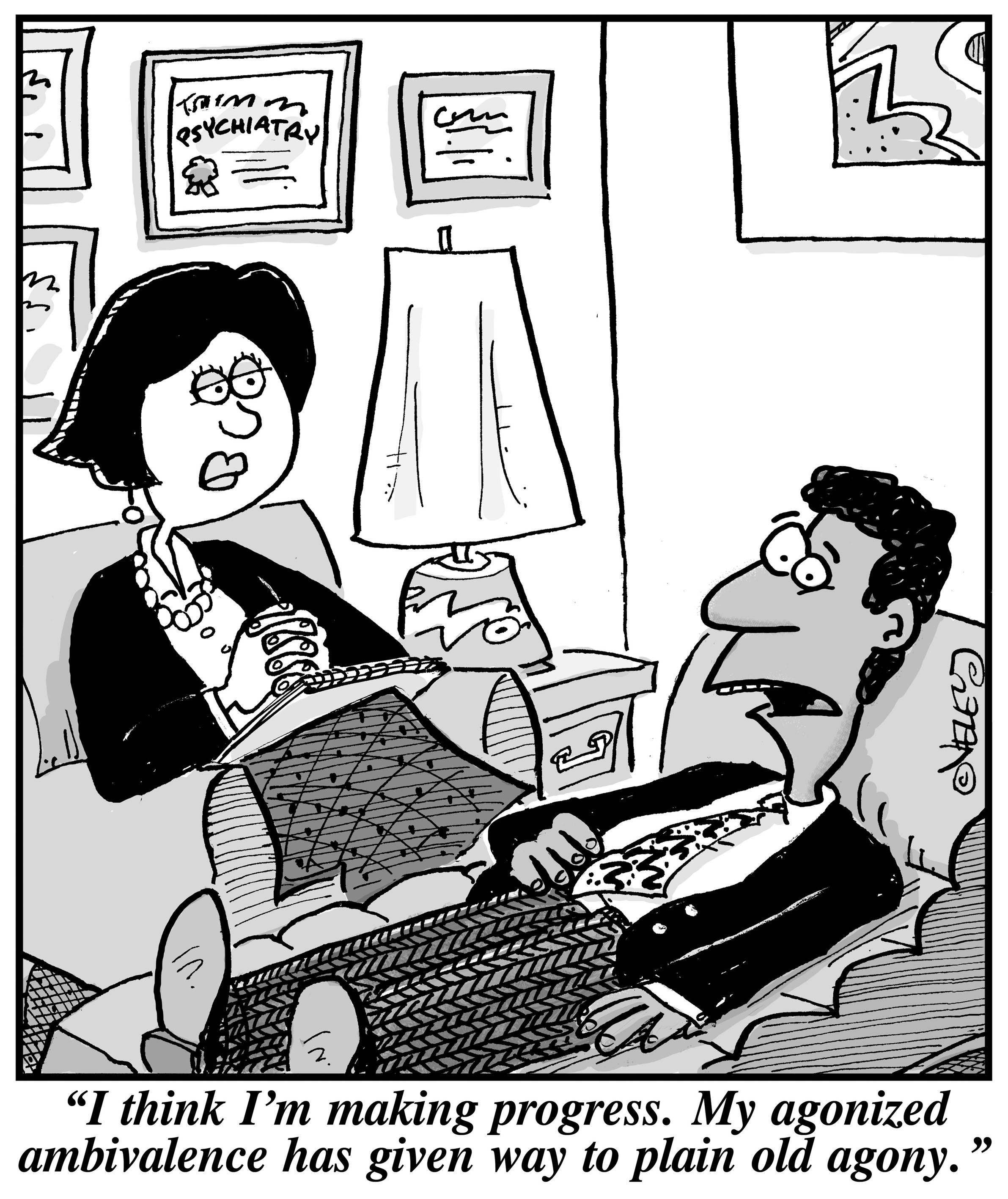Part 3
What to do with the pain?
It had been a painful morning for Peter. His wife Eliza had cheated on him the year prior, and they had spent the last several months in weekly affair recovery counseling sessions. Eliza had been working to rebuild trust with Peter. Peter had been working on forgiveness and increasing confidence in the marriage. But this morning, Peter noticed Eliza on her phone more than he was comfortable with. He knew she had a big project at work that was due, but his fear got the best of him. They had been through this before. Eliza would show him her phone every time and reassure him that she wasn’t cheating again. But this morning, Eliza had had enough. She had done everything she had been asked to do. And she was tired of seeing Peter so insecure. So she reacted and told him no, he wouldn’t be allowed to check her phone that morning.
Later that night Eliza came home from work, and the two had a chance to talk. Eliza apologized for reacting the way she had. She felt under a microscope, which was fine with her for a while, as she felt she’d deserved it. But she was beginning to feel like she was ready to have the microscope set aside. Of course, that part would be up to Peter…whether he was willing and able to stop watching her so closely. The part that was up to her was whether she was willing to offer herself up to be examined to see if she was worthy. And she had realized she was no longer willing to do so.
It was Peter’s turn to react.
He had stewed all day. He felt it was still way too early for Eliza to think he could trust her again. The therapist’s main point always seemed to be that Eliza should reassure him during these times, and he reminded Eliza of this as calmly as he could. But Eliza WAS calmer. She seemed to be ready for a reaction from him, and it pissed him off even more! The outer calm he was trying to project crumbled, and he let her have it. Somehow, Eliza was able to remain calm…well, calmer than she’d been able to be in the past when Peter’s anger spewed out.
What was Peter to do? What was Eliza to do?
Affair Recovery Counseling—A Look Behind the Curtain

There is a discussion going on in the field of affair recovery counseling regarding what is best to do with this kind of painful, intense, emotion between spouses, whether they are coping with infidelity or any other issue. The first camp would say that Peter needs to “grow up,” that his wife has paid for her “crime,” and that he needs to learn to both soothe and control his own emotions—if not at this point, then at some point in the near future. This camp might suggest that Peter is in control of the relationship and that their relationship is dysfunctional. The therapist in these situations is to walk a fine line between being confrontational and empathetic.
The second camp would say that these emotions are perfectly normal, and in fact, represent our biological need for secure bonds. They base their thinking on some research that began in the 1940’s and 50’s on the bond between mother and infant, theorizing that adults have similar attachment requirements as children. The therapist might help Eliza grow more patient with Peter’s needs, and they might help Peter learn to express “softer” emotions like sadness and fear instead of anger. The belief being that when couples can respond to their partner’s pain with reassurances and love, they will bond securely and love will save the day.
After many years of studying and practicing on both sides of this argument I no longer find myself in either affair recovery counseling camp. The first camp is too exacting and oversimplifies complicated problems, which causes others. The second camp is deeply optimistic but perhaps a bit idealistic. The belief is that if the couple could just spend time together, have date nights, and get vulnerable, that they will fall in love again and be healed. When I’m helping couples through marital infidelity, and I’m working with a couple dealing with their 2nd, 3rd, or 4th affairs, idealism doesn’t make sense…not to them…and not to me. It would feel unfair of me to push for vulnerability and trust. Don’t get me wrong…couples who are dealing with multiple affairs can get to a place where they feel trust again and where they want to open up to each other…but these come as a side effect rather than the actual work.
Because the third camp, the one I’m in, says that this kind of thing can’t be forced. Not with date nights, not with emotionally moving conversations in the therapy office, not with communication techniques. Couples can and need to connect emotionally. It is important for our health. It is important for our survival. But I find that if couples want more sustainable results, two factors need to be in play:
- Being self-directed in this connecting process is much more successful than being therapist- or article-I-found-on-the-internet-directed…however good that article may be ;). People get more done and have more sustainable results when they learn to connect and respond to conflict and to distance in the real world, not so much in the therapist’s office. The affair recovery counseling office (mine anyway) is more for coaching and for developing perspective. Experimentation and implementation are for people to do at home…or in the car…or when you’re getting divided over the kids again…
- Developing a broader perspective is essential. Like stepping back and reflecting on the course of the relationship, where it took this or that turn, or upon your own life. Not so you can find the cause of the affair, but so that you’ll stop looking for one. You’ll know your perspective is broad enough when you stop looking for how either you or your spouse caused the affair. It’s too complicated for that.
So, what to do with pain? Write it down. Learn about it. Accept it. Try not to fight it. Try not to let it be your only source for decision-making. See how much you can observe without trying to control…either in yourself or in your spouse. Run some experiments. Let me know—or let your therapist know—how you’re doing and how your thinking is evolving.

As it turns out, Eliza stayed with her emerging sense that she was done being punished and done taking care of Peter’s emotions, but she was clear, perhaps clearer than ever, that she wasn’t done with Peter.
Peter sensed this shift in her. He appreciated it. He started seeing her as not just the woman who betrayed him, but as a person in her own right. He finally stopped blaming her…and himself…for the most part.
There are no fairy tales, folks, where people are suddenly free and clear from all the pain in their lives. I don’t want to paint a picture of happily ever after. Marital infidelity, like all seemingly insurmountable marriage problems, will stick with you. But you can get close again. You, and your marriage, can be changed by it. And it can be good.
Want more information about a different approach to infidelity counseling? Feel free to contact me or learn more about how affair recovery can help you!

Recent Comments